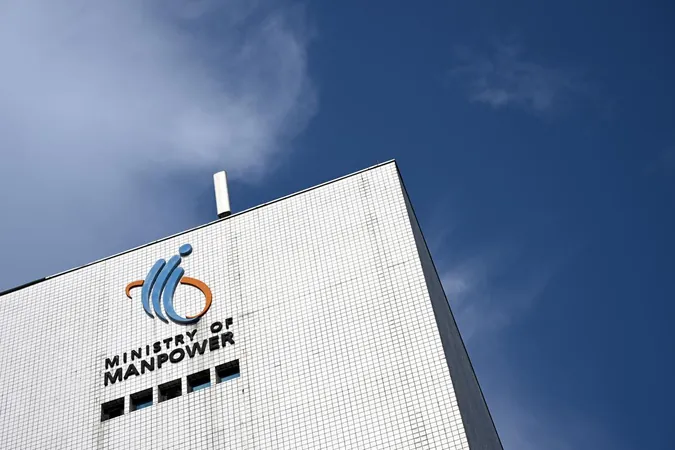
Freight Forwarding Company Slammed with $9,000 Fine for Failing to Compensate Injured Worker
2025-05-08
Author: Sarah
Singapore Freight Company Faces Legal Consequences
In a significant legal ruling, a Singapore-based freight forwarding company has been fined $9,000 after failing to compensate an employee, who sustained a permanent injury, within the mandated 21 days. This ruling comes as a stark reminder of the legal obligations companies have towards their employees under the Work Injury Compensation Act.
The Incident That Sparked Legal Action
On January 6, 2022, Mr. Abdul Halim Mokhtar was instructed by AIS Global Forwarders to move an exercise machine from a residence on Shelford Road. Unfortunately, while performing this task, the machine's handle struck him on the forehead, resulting in permanent incapacity.
Insurance Lapse Exposed Company
Further investigations revealed a troubling fact: AIS Global Forwarders did not possess a valid work injury compensation insurance policy at the time of the incident, leaving them vulnerable to significant legal repercussions.
Timeline of Events and Court Actions
After the incident, a notice of assessment was served on the company on July 17, 2023, requiring payment of over $98,000 to Mr. Abdul Halim within 21 days. This was formalized with a legal certificate of order on August 16, 2023. However, by the deadline of September 6, the company had failed to make any payments, leading to charges being filed against them in 2024.
The Bigger Picture
This case highlights the critical importance of having valid insurance coverage for employee work-related injuries. The legal obligations under the Work Injury Compensation Act are designed to protect workers and ensure they receive necessary compensation in a timely manner. As the case unfolds, it raises questions about the responsibilities of companies towards their employees and the potential consequences of neglect.
Awaiting Further Developments
As investigations continue, The Straits Times has reached out to the Ministry of Manpower to determine if Mr. Abdul Halim has received the compensation owed to him. This case serves as a reminder that employers must prioritize the safety and welfare of their workers.


 Brasil (PT)
Brasil (PT)
 Canada (EN)
Canada (EN)
 Chile (ES)
Chile (ES)
 Česko (CS)
Česko (CS)
 대한민국 (KO)
대한민국 (KO)
 España (ES)
España (ES)
 France (FR)
France (FR)
 Hong Kong (EN)
Hong Kong (EN)
 Italia (IT)
Italia (IT)
 日本 (JA)
日本 (JA)
 Magyarország (HU)
Magyarország (HU)
 Norge (NO)
Norge (NO)
 Polska (PL)
Polska (PL)
 Schweiz (DE)
Schweiz (DE)
 Singapore (EN)
Singapore (EN)
 Sverige (SV)
Sverige (SV)
 Suomi (FI)
Suomi (FI)
 Türkiye (TR)
Türkiye (TR)
 الإمارات العربية المتحدة (AR)
الإمارات العربية المتحدة (AR)